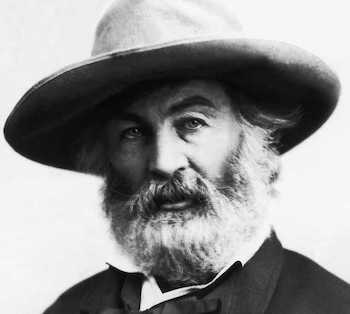Leaves of Grass and its impact on American Literature

Walt Whitman's Leaves of Grass is a groundbreaking work of American literature that has had a profound impact on the nation's literary landscape. First published in 1855, Leaves of Grass is a collection of poems that celebrate the beauty and majesty of nature, the individuality and dignity of the human soul, and the inherent worth of every person. It is considered one of the most influential works of American poetry and has been widely praised for its bold and innovative style, as well as its celebration of democracy, equality, and freedom.
Walt Whitman was born on May 31, 1819, in West Hills, New York. He grew up in a working-class family and received little formal education, but he was an avid reader and was deeply influenced by the works of William Shakespeare, John Keats, Percy Bysshe Shelley, and other great poets of the time. Despite his lack of formal education, he had a natural talent for writing and began publishing poetry and articles in local newspapers and magazines while still a young man.
In 1855, at the age of 36, Whitman self-published "Leaves of Grass," a collection of 12 poems that he had been working on for several years. The first edition of the book was a slim volume of only 95 pages, but it was filled with bold, innovative poems that celebrated the individual and the common man, as well as the beauty and majesty of nature. The poems were unlike anything that had been written before, and they were praised by some and criticized by others for their bold and unconventional style.
Despite the mixed reaction to "Leaves of Grass," Whitman continued to refine and expand the collection throughout his life. Over the next several decades, he published several more editions of the book, each one growing in size and scope. By the time of his death in 1892, "Leaves of Grass" had grown to become a massive collection of poems that spanned over 400 pages.
One of the most significant aspects of "Leaves of Grass" is its celebration of democracy and equality. Whitman believed that all people were equal in the eyes of God, regardless of their race, religion, or social status. This belief was reflected in the poems, which often portrayed the common man as heroic and dignified. The book also celebrated the individual, and the poems celebrated the beauty and majesty of nature, as well as the power of the human soul.
Another significant aspect of "Leaves of Grass" is its bold and innovative style. The poems were written in free verse, which was a revolutionary departure from the traditional rhymed and metered poetry of the time. The free verse allowed Whitman to express his thoughts and feelings in a more natural and organic way, and it gave the poems a more immediate and intimate feel. The style was so innovative and influential that it paved the way for other poets, such as Emily Dickinson and T.S. Eliot, to experiment with free verse in their own work.
"Leaves of Grass" also had a profound impact on American literature as a whole. The book helped to define the American voice and was a significant influence on other writers and poets who followed in Whitman's footsteps. Many of the themes and styles that were first introduced in "Leaves of Grass" continue to be explored and developed in American literature to this day.
In conclusion, Walt Whitman's "Leaves of Grass" is a groundbreaking work of American literature that has had a profound impact on the nation's literary landscape. The collection celebrates democracy, equality, and freedom, and it is filled with bold and innovative poems that celebrate the beauty and majesty of nature, the individuality and dignity of the human soul, and the inherent worth of every person. Its impact on American literature is substantial.
